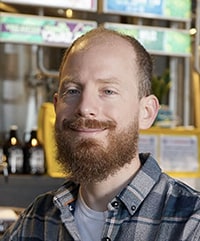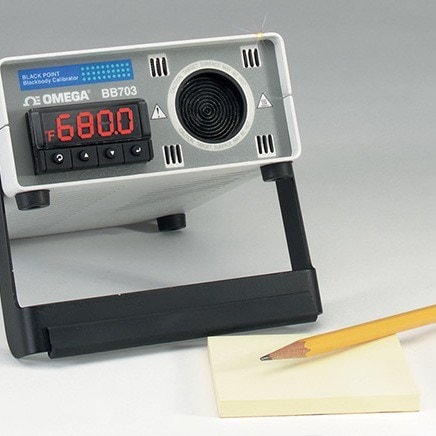Held every year to shine a light on engineers and the vital role they play in innovating solutions to global challenges, National Engineers Week celebrates how engineers make a difference in our world. This year’s theme is ‘Creating the Future’. Looking to future careers, and as part of our Honoring Engineers Series, we asked our Director of Engineering Ken Leibig a few questions about his experiences and advice for up-and-coming professionals.
Omega: What sparked your interest in engineering?
Ken: I always had a really hands-on personality and was obsessed with the mechanics of how things worked. In middle school, I spent most of my time taking apart, building, and riding bicycles and go-karts. Once I turned 16, I spent all my time and energy learning about and working on cars. Volkswagens in particular became (and still are) my largest passion.
 Ken Leibig, Director of Engineering
Ken Leibig, Director of Engineering
In high school, Calculus and Physics were my favorite subjects. I knew I wanted to do something with math, but accounting didn’t seem hands-on enough for me. I happened to stumble-upon Engineering, but didn’t know anything about it, so I took a 1-week course at Drexel University the summer before my Junior Year in High School. The course taught you all about the different kinds of Engineering (Mechanical, Electrical, Chemical, Civil, etc.) and what Engineers do. Ever since that week, I knew Engineering was the path for me.
Omega: What do you wish you’d have known when you were early career?
Ken: The day-to-day tasks of what you’ll be doing at a job are much more relevant to your happiness in that job than the subject matter itself. Early on in my career, I wanted to go into Automotive Engineering, since cars were my passion, but after my co-op experiences, it was clear that is NOT what I wanted to do. I didn’t want to get stuck behind a desk designing and running simulations on exhaust manifolds for a new Porsche all day, every day. Sure, Porsches are great, but there is too much bureaucracy in the Automotive OEM world. The Design Engineer is often not the Test Engineer and almost never the Tech who is installing the new parts. I wanted to be hands-on, in the lab (or shop), making prototypes and running tests on products that I had 3D modeled the day before. I wanted to be part of the whole picture, not just a subcomponent. Even though sensors per se are not my passion, I am infinitely happier taking a new sensor concept from its ideation all the way through its complete product development (designing, prototyping, testing, manufacturability etc.) than I would have been doing exhaust manifold flow calculations day-in and day-out.
Omega: What is one non-engineering skill you recommend for up-and-coming engineers?
Ken: Get into automotive (or even small-engine) mechanics. The problem-solving skills you develop while diagnosing and fixing problems on engines and transmissions are directly transferrable to how you should approach and solve problems as an Engineer. Often, a mechanic’s biggest complaint is about the Engineer who designed the part he’s replacing. By getting hands-on experience working in an engine bay, you’ll see things through the eye of the repair man, which will ultimately make you a better design engineer.
Omega: Anything else you’d like to add?
Ken: When considering Engineering schools, make sure there is a strong intern or co-op program. The real-world experience you get from spending time as a co-op was severely underrated when I was applying to universities. I think most students just see it as a hinderance to graduating on-time (Drexel was a 5-year program). Through a good co-op program, you can get multiple internship experiences, where you will learn first-hand not only what you like to do, but also what you don’t like to do, which is just as important.

